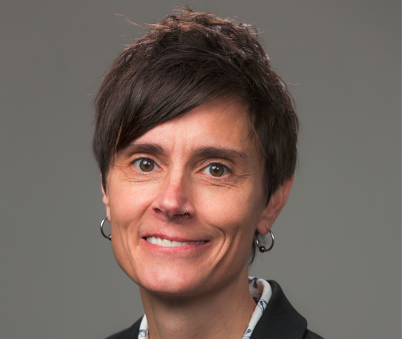By Haiyan Zhou
Forming diverse teams and establishing positive team dynamics was crucial for Prof. Sara LeGrand‘s course “Social Determinants of Health: China and the World.” The Duke Global Health Institute, where Prof. LeGrand worked, had the task of detecting the social determinants of health and analyzing their impact on health outcomes and inequities.
Why is a team project important?
The goal of the course taught at DKU is to examine a variety of factors that impact current global health. The factors range from living and working conditions, behavior and biology, psychosocial issues, health care systems, socioeconomic position, to socioeconomic and political context. In the real world, interdisciplinary teams are needed to solve the most pressing global health challenges. Prof. LeGrand’s students were from different backgrounds, majors, and career paths, which facilitated forming diverse teams, assigning teamwork, and allowing for application of knowledge to address current global health challenges.
Prof. LeGrand implemented principles of team-building and teamwork strategies in her class. The class was subdivided into teams on the 4th day of class based on the student information sheet and student self-introduction video (discussed in the previous story). Each team worked together in case study discussions and activities/competitions. Students were asked to sit together with their team during each class as well.
What does the “Determinant Detectives” team project look like?
The social determinants of health are structural and intermediary factors that are strongly related, either positively or negatively, to health outcomes. Prof. LeGrand designed the team project with this in mind and provided the following guidance:
“In this class, it is critical that you learn to detect determinants and analyze what impact they may have on health outcomes and inequities. In order to practice the skill and introduce your team, please choose a location on or near the DKU campus and create a 10-minute video (+/- a minute is fine) that introduces your team and explores the determinants of health at this location and the potential impacts of these determinants on health outcomes. As part of the exercise, make certain that the video includes the following:
- Team name and why you chose it
- Team’s key strengths (including what each team member brings to the group)
- Something that gives us a sense of your team’s personality
- Your location during filming
- Analysis of determinants and potential impacts on health outcomes at your location (your analysis of the SDOH [the social determinants of health] is the most important part of this assignment) DO NOT PUT YOURSELF IN DANGER OR BREAK ANY LAWS!!!!”
The video below is from the Mountain Top team
https://duke.box.com/s/lwkzfxpey5sdlo38ds4v2ohma6dd7awm
The final video was uploaded to VoiceThread, the multimedia presentation, sharing, and commenting system integrated into Sakai. In my previous story, I explained how students first practiced their video skills early in the course by introducing themselves, which prepared the students and paved the way for the success of this team project.
In the course evaluation, students expressed that they enjoyed and loved the teamwork. Many indicated that the video projects were the best part of the course and that they have learned a lot from the team experience.
[Note: The screenshots and the video are from the course site. All rights reserved.]
Faculty Introduction

Sara LeGrand
Associate Research Professor in the Duke Global Health Institute (DGHI) – Center for Health Policy & Inequalities Research
Dr. Sara LeGrand is a health services researcher and socio-behavioral scientist with over 10 years of post-Ph.D. experience in global health research, with an additional 4 years of evaluation experience prior to completing her doctoral studies. She has held a position at Duke for 13 years. She currently serves as principal investigator or investigator for numerous federally funded grants and has over 55 articles published in peer-reviewed journals.
Dr. LeGrand is interested in supporting the next generation of global health scholars by teaching “Fundamentals of Global Health” course for undergraduates and master’s students at Duke, “Social Determinants of Health” course at DKU, and a seminar on Sexual and Gender Minority Health at Duke. She hopes to expand the latter to a full 3-credit course soon!
LeGrand earned a B.S. degree in outdoor/physical education in 1998, a master’s degree in health education in 2001, both from Winthrop University, and a Ph.D. degree in health services research from University of North Carolina at Charlotte in 2010.


